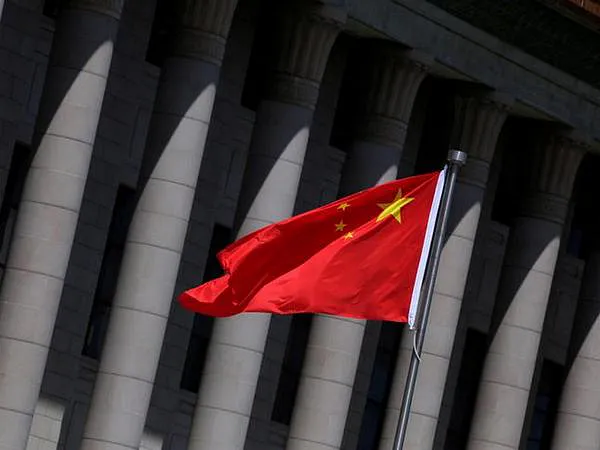The rural-urban divide among millions of Chinese youth may stand between the dragon country and future economic rise because of a growing mismatch between jobs and education.
Every passing year is forcing the youth to choose higher education courses on the basis of their low income backgrounds. That in turn is leading to lower academic performance. As a result, the question millions of youth in China face after completing high school is whether to pursue academic or vocational education.
The academic route is very expensive in the country. It costs time too. However, the returns are not very encouraging considering scores of skilled youth with college degrees compete for low-level jobs. On the other hand, youth prefer vocational education because it is tailored to the skill sets needed for available jobs in the labor market. But these are low paying and lack opportunities for career growth. So, the youth is really stuck in a cleft stick. On top of it, the youth who come from the rural areas prefer vocational education because of their low academic rankings. This overall employment challenge is exacerbated by global uncertainty, job market mismatch and overeducation.
The irony is that still, there is an oversupply of university graduates and an undersupply of skilled workers. China’s youth must grapple with the reality that education no longer guarantees prosperity – that is the mantra of experts.
Following the global trend of rapidly increasing student enrolment in higher education, “the number of university enrolments and graduates increased dramatically in China”, according to a research paper. The increase has been so substantial that data from 2015–2017 showed that the “proportion of university graduates aged 24–35 outweighed the share of lower secondary graduates — a clear sign of the consequences of rapid higher education growth”.
The paper says that mass education can compromise the quality of education and may challenge socio-economic development if growing student enrolments are not accompanied by proportionate increases in ‘human, financial and physical support’. The problem is further magnified when university graduates believe that ‘higher education is ‘elite education’ and do not take up ‘blue-collar jobs’ that offer the most vibrant opportunities in China.
The job market situation facing young people in China is challenged by the undersupply of skilled workers. According to available data, “across all working aged people, around 30 per cent completed lower secondary education, 14 per cent completed academic upper secondary education and only 9 per cent completed vocational upper secondary education”. There has been a significant “shift from an economy dominated by lower-educated workers to higher-educated ones, reflecting an overall improvement in the quality of labor supply”.
It is learnt that there has also been an “increase in vocational upper secondary graduates and vocational university graduates” in the younger generations. But the increase is more a “result of government policy that aims to balance vocational enrolments and academic enrolments nationwide” than individual decisions. Students are simply reluctant to choose the vocational track.
Experts contend that “China has a long-standing culture of degrading vocational graduates and discouraging parents from sending their children to vocational institutes”. In the job market, employers are “enticed by the abundant supply of highly qualified university candidates and are not incentivised to increase salaries for vocational graduates” of any level. Yet, the undersupply of skilled workers coupled with the oversupply of university graduates has shrunk the wage differences between vocational upper secondary graduates and university graduates.
The Chinese government today faces a critical situation: Oversupply of university graduates and the undersupply of skilled workers have both worsened the job market’s mismatch problem. Highly qualified individuals have to match downward to low-skilled jobs and snatch opportunities from less competitive vocational graduates. This decreases the attractiveness of vocational education and further depreciates the value of degrees as more students turn to academic education.
There is also the problem of gender wage gap that is prevalent across vocational and academic graduates. At the upper secondary and tertiary level, “men are consistently paid 11–14 per cent more than women”. Within the same gender, returns to academic education at the tertiary level are more than 20 per cent higher than returns to vocational education. Yet returns to academic education at the upper secondary level are similar to returns to vocational education at the same level.
Meanwhile, latest data shows that the share of uneducated workers in China’s labor force is “larger than that of virtually all middle-income countries”. There are roughly 500 million people in China between the ages of 18 and 65 without a high school degree.
A special report on the issue says: “A large population of uneducated workers was not a problem when China moved from low to middle income. Unskilled wages were low and there was growth in low-cost manufacturing and construction. But China’s growth model is changing as it gets wealthier. Unskilled wages are much higher, but the lure of cheaper labor elsewhere and China’s massive push to automate is rendering low-skilled workers redundant. Construction jobs have tapered off as investment in infrastructure cools. These factors suggest China’s unskilled workers may be increasingly unemployable as the economy upgrades.”
The only destination for China’s unskilled workforce—whether new entrants or laid-off workers—is the informal service sector. According to experts, the result may come to resemble Mexico: a case of solid macroeconomic performance, export success, and accumulation of physical capital, yet little growth in the formal economy.

